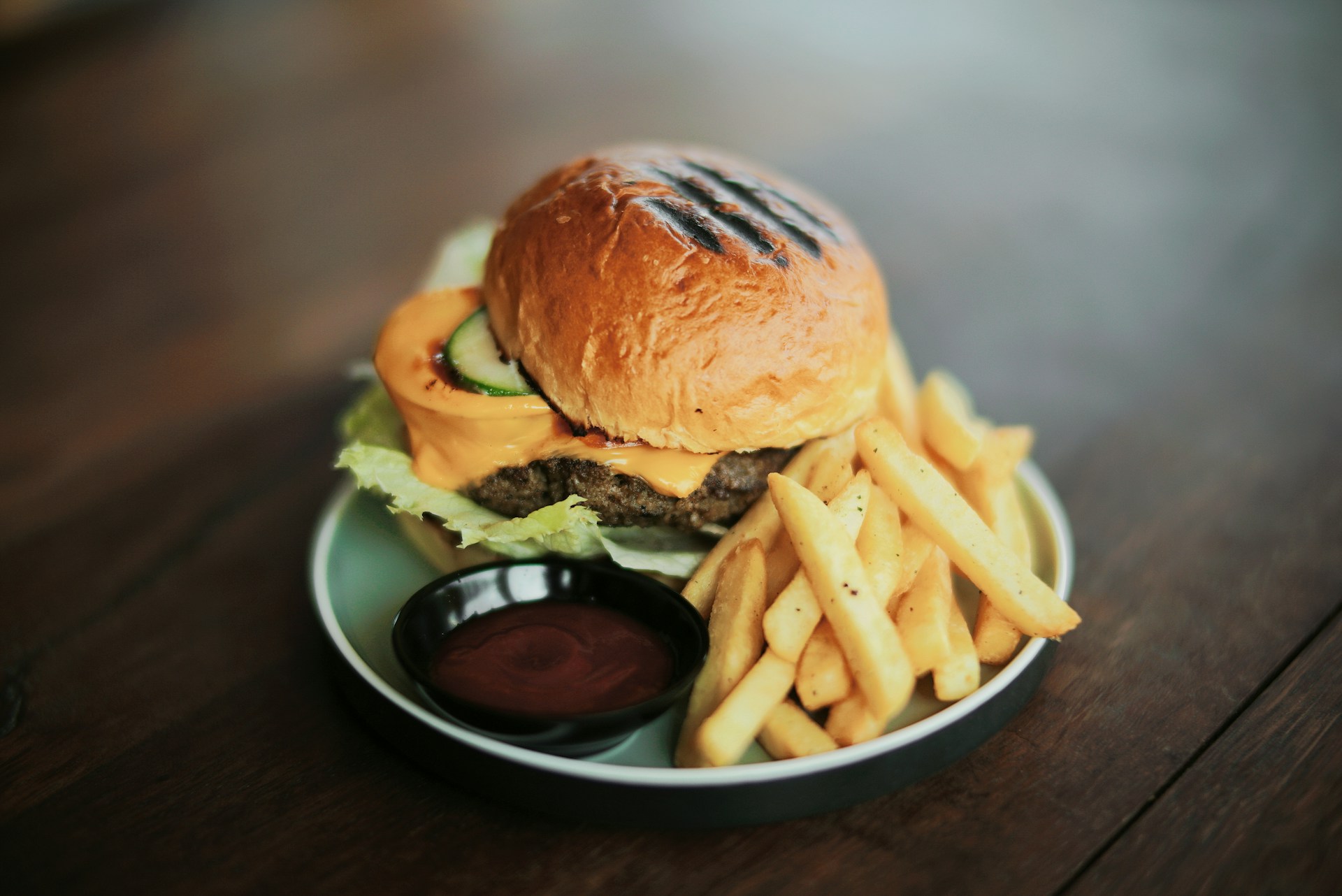Recent Literature Review: The Effects of Tea Consumption on Hypertension
Tinjauan Literatur Terkini: Peranan Konsumsi Teh terhadap Penyakit Hipertensi

Downloads
Background: In Indonesia, the prevalence of hypertension was found to increase from 25.8% (2013) to 34.1% (2018). In additon, patients with this medical condition are generally required to adhere to lifelong anti-hypertensive drugs for blood pressure control. However, recent studies have suggested the use of tea containing active compounds Epigallocatechin-3-gallate (EGCG), which can lower blood pressure.
Objectives: This study aimed to provide an overview of active compounds in tea with the potential to lower blood pressure.
Methods: The data used were obtained from sources related to randomized controlled clinical trials searched through the Pubmed page in the 2017-2022 period, with various keywords such as tea, blood pressure, and hypertension.
Discussions: Out of 35 studies reviewed, a total of 9 were obtained from the literature search. The results showed that EGCG in capsule form with a dose range of 75-300 mg could reduce blood pressure significantly, as observed in studies with capsules containing anthocyanins and polyphenols. Although 4 studies used tea beverages as intervention materials, there was no significant decrease in blood pressure. Furthermore, 2 studies showed a significant variation due to differences in the levels of active compounds and the presence of caffeine in tea, which affected blood pressure measurements.
Conclusions: The use of active compounds in tea, particularly EGCG, in recent clinical trials on blood pressure regulation has shown a significant reduction in hypertension. Therefore, exploiting the potential of EGCG in a larger sample size could serve as a promising avenue for future studies.
INTRODUCTION
The prevalence of hypertension is experiencing a significant increase globally, affecting approximately 1.28 billion adults (aged 30-79), with two-thirds of cases residing in low- to middle-income countries. Despite the high prevalence, only 42% of individuals diagnosed with this medical condition receive treatment, while 21% are classified as controlled cases1. In Indonesia, the prevalence of hypertension has increased from 25.8% in 2013 to 34.1% in 20182, showing a concerning trend in the health sector of the country. Hypertension is often referred to as a silent killer, manifesting with or without symptoms typically appearing alongside complications such as heart disease, kidney disease, stroke, retinal hemorrhage, and others.
Hypertension is characterized by elevated systolic blood pressure (SBP) and diastolic blood pressure (DBP). This condition increases the risk of all-cause mortality, with an estimated 17 out of 67 deaths predominantly attributed to cardiovascular and cerebrovascular disease outcomes3. Compared to individuals with normal blood pressure (normotension), those with untreated hypertension have a 1.62, 2.23, and 3.01 times higher risk of all-cause mortality, cardiovascular disease, and cerebrovascular disease, respectively. However, when hypertension is treated and controlled, there is no significant difference in mortality rates compared to normotensive individuals4. This underscores the importance of blood pressure control for individuals with hypertension and primary prevention such as modifying risk factors, including unhealthy lifestyles, high salt and saturated fat intake, sedentary living, alcohol consumption, and smoking1. Improving healthy lifestyles such as tea consumption has been proven to reduce the risk of hypertension and hypertension-related mortality5;6.
The habit of consuming tea, made from leaves of the Camellia sinensis plant, is believed to have started approximately 4000-5000 years ago in Southern China, as stated in ancient herbal medicine books such as "The Divine Husbandman’s Classic of Materia Medica" (Shen Nong Ben Cao Jing). People in ancient China believed that tea could maintain health and prevent various diseases7. Currently, the global consumption of tea as a beverage has exceeded 2 billion cups daily, due to its nutritional value and health benefits3. Tea is also rich in various minerals, sugars, amino acids, organic acids, and flavonoids offering various benefits for maintaining physiological health. Furthermore, active compounds in tea can regulate blood pressure and endothelial function, along with anti-thrombotic, anti-atherosclerotic, cholesterol-lowering (total cholesterol, triglycerides, and low-density lipoprotein [LDL]), and anti-inflammatory properties8;9;10;11;12;13;14;15. These various benefits of active compounds lead to the assumption that tea is capable of reducing hypertension incidence and improving outcomes.
Studies on tea regarding blood pressure control have been shown in preclinical and clinical trials. In various preclinical trials, tea has been shown to lower blood pressure through several mechanisms such as reducing oxidative stress, preventing inflammation, increasing nitric oxide production, and others16;17;18;19. In clinical trials, there have been inconsistent results where significant reductions are observed in blood pressure with tea consumption20;21;22;24;25;28, while others show insignificant decreases23;26;27. Therefore, this study aimed to provide up-to-date information on clinical trials of tea consumption regarding blood pressure control. The results are expected to provide insight into the basics of tea nutrition and the molecular mechanism in blood pressure control.
METHODS
In this study, the literature search regarding the epidemiology of hypertension was conducted using sources from the World Health Organization (WHO) and the Basic Health Research2. Nutritional data on tea were obtained from the websitehttps://www.panganku.org/. Furthermore, data retrieval on clinical trials of tea's benefits for hypertension was conducted using PubMed with keywords "tea" AND "hypertension" as well as "tea" AND "blood pressure". This search strategy applied Boolean Operators, where the use of the word "AND" aimed to combine different concepts to refine the study search. As shown inFigure 1, filtering was performed based on publication years from 2017 to 2022 with the selected study type being RCT. The inclusion criteria were studies written in English, recent (published within the last 5 years), randomized controlled trials (RCT), compared with a placebo, and provided data on blood pressure before and after interventions.
Figure 1.Flowchart of study screening through the PubMed search engine. Out of 36 identified studies after screening, the final result yielded 9 studies for discussion
DISCUSSIONS
Nutrition in Tea
As shown inTable 1, the nutritional content in tea varies based on the type and processing method applied during cultivation and production29;30;31. The steaming process of tea leaves can lead to a reduction in protein levels, soluble fiber, vitamins (B2, B3, and C), and minerals such as Na, K, Ca, Mg, Fe, and Zn. Conversely, the fermentation process decreases nutritional content such as calcium and vitamins (B1, B2, B3, and C)27.
Nutritional Composition/100 g Food | Dried Green Tea Leaves | Dried Black Tea Leaves | Dried Jasmine Tea Leaves |
|---|---|---|---|
Water (g) | 7.7 | 8.0 | 8.1 |
Energy (cal) | 300 | 293 | 299 |
Protein (g) | 28.3 | 24.5 | 24.1 |
Carbohydrates (g) | 53.6 | 58.8 | 59.0 |
Fiber (g) | 9.6 | 8.7 | 9.7 |
Ash (g) | 5.6 | 5.9 | 5.3 |
Calcium (mg) | 245 | 327 | 320 |
Iron (mg) | 18.9 | 24.3 | 31.6 |
Sodium (mg) | 60 | 50 | 70 |
Potassium (mg) | 5873.9 | 5854.8 | 5848.4 |
Beta-carotene (µg) | 8400 | 2700 | 8400 |
Thiamine (mg) | 0.38 | 0.07 | 0.07 |
Riboflavin |
World Health Organization. Hypertension – Fact Sheets. Available at: https://www.who.int/news-room/fact-sheets/detail/hypertension (Accessed: 01 April 2023)
Kementerian Kesehatan Republik Indonesia. Hasil Utama RISKESDAS 2018. (2018).
Aune, D., Huang, W., Nie, J., Wang, Y. Hypertension and the Risk of All-Cause and Cause-Specific Mortality: An Outcome-Wide Association Study of 67 Causes of Death in the National Health Interview Survey. BioMed research international. 2021, 9376134 (2021).
Zhou, D., Xi, B., Zhao, M., Wang, L., Veeranki, S. P. Uncontrolled hypertension increases risk of all-cause and cardiovascular disease mortality in US adults: the NHANES III Linked Mortality Study. Scientific reports. 8(1), 9418 (2018).
Gao, J., Wang, L., Liang, H., He, Y., Zhang, S., Wang, Y., et al. The association between a combination of healthy lifestyles and the risks of hypertension and dyslipidemia among adults-evidence from the northeast of China. Nutrition, metabolism, and cardiovascular diseases: NMCD. 32(5), 1138–1145 (2022).
Lu, Q., Zhang, Y., Geng, T., Yang, K., Guo, K., Min, X., et al. Association of Lifestyle Factors and Antihypertensive Medication Use With Risk of All-Cause and Cause-Specific Mortality Among Adults With Hypertension in China. JAMA network open. 5(2), e2146118 (2022).
Pan, S-Y., Nie, Q., Tai, H-C., Song, X-L., Tong, Y-F, Zhang, L-J-F., Wu, X-W., et al. Tea and Tea Drinking: China’s Outstanding Contributions to the Mankind. Chin Med. 17, 27 (2022).
Fuchs, D., Graaf, Y.D., Kerckhoven, R.V., Draijer, R. Effect of Tea Theaflavins and Catechin on Microvascular Function. Nutrients. 6(12), 5772-5785 (2014).
Xu, R., Yang, K., Ding, J., Chen, G. Effect of Green Tea Supplementation on Blood Pressure: A Systematic Review and Meta-Analysis of Randomized Controlled Trials. Medicine. 99(6), e19047 (2020).
Mahdavi-Roshan, M., Salari, A., Ghorbani, Z., Ashouri, A. The Effects of Regular Consumption of Green or Black Tea Beverage on Blood Pressure In Those With Elevated Blood Pressure or Hypertension: A Systematic Review and Meta-Analysis. Complement Ther Med. 51, 102430 (2020).
Lorenz, M., Rauhut, F., Hofer, C., Gwosc, S., Müller, E., Praeger, D., et al. Tea-Induced Improvement of Endothelial Function In Humans: No Role for Epigallocatechin Gallate (EGCG). Sci Rep. 7(1), 2279 (2017).
Deng, X., Hou, Y., Zhou, H., Li, Y., Xue, Z., Xue, X., et al. Hypolipidemic, Anti-Inflammatory, and Anti-Atherosclerotic Effects of Tea Before and After Microbial Fermentation. Food Sci Nutr. 9(2), 1160–1170 (2021).
Reddy, A. T., Lakshmi, S. P., Maruthi Prasad, E., Varadacharyulu, N. C., Kodidhela, L. D. Epigallocatechin Gallate Suppresses Inflammation In Human Coronary Artery Endothelial Cells By Inhibiting NF-κB. Life sci. 258, 118136 (2020).
Xu, R., Yang, K., Li, S., Dai, M., Chen, G. Effect of Green Tea Consumption on Blood Lipids: A Systematic Review and Meta-Analysis of Randomized Controlled Trials. Nutr J. 19(1), 48 (2020).
Zheng, X. X., Xu, Y. L., Li, S. H., Liu, X. X., Hui, R., Huang, X. H. Green Tea Intake Lowers Fasting Serum Total and LDL Cholesterol In Adults: A Meta-Analysis of 14 Randomized Controlled Trials. Am J Clin Nutr. 94(2), 601–610 (2011).
Mohd Sabri, N. A., Lee, S. K., Murugan, D. D., Ling, W. C. Epigallocatechin gallate (EGCG) Alleviates Vascular Dysfunction In Angiotensin II-Infused Hypertensive Mice by Modulating Oxidative Stress and eNOS. Scientific reports. 12(1), 17633 (2022).
Luo, D., Xu, J., Chen, X., Zhu, X., Liu, S., Li, J., et al. (-)-Epigallocatechin-3-gallate (EGCG) Attenuates Salt-Induced Hypertension and Renal Injury in Dahl Salt-Sensitive Rats. Scientific reports. 10(1), 4783 (2020).
de la Fuente Muñoz, M., de la Fuente Fernández, M., Román-Carmena, M., Iglesias de la Cruz, M. D. C., Amor, S., Martorell, P., Enrique-López, M., García-Villalón, A. L., Inarejos-García, A. M., & Granado, M. Supplementation with Two New Standardized Tea Extracts Prevents the Development of Hypertension in Mice with Metabolic Syndrome. Antioxidants (Basel, Switzerland). 11(8), 1573 (2022).
Ye, X., Tang, X., Li, F., Zhu, J., Wu, M., Wei, X., & Wang, Y. (2022). Green and Oolong Tea Extracts With Different Phytochemical Compositions Prevent Hypertension and Modulate the Intestinal Flora in a High-Salt Diet Fed Wistar Rats. Frontiers in nutrition. 9, 892801 (2022).
Izadi, F., Farrokhzad, A., Tamizifar, B., Tarrahi, M. J., Entezari, M. H. Effect of Sour Tea Supplementation on Liver Enzymes, Lipid Profile, Blood Pressure, and Antioxidant Status in Patients With Non-Alcoholic Fatty Liver Disease: A Double-Blind Randomized Controlled Clinical Trial. Phytotherapy research: PTR. 35(1). 477–485 (2021).
Taati, B., Arazi, H., & Kheirkhah, J. Interaction Effect of Green Tea Consumption and Resistance Training On Office and Ambulatory Cardiovascular Parameters In Women With High-Normal/Stage 1 Hypertension. J Clin Hypertens (Greenwich). 23(5), 978–986 (2021).
Chatree, S., Sitticharoon, C., Maikaew, P., Pongwattanapakin, K., Keadkraichaiwat, I., Churintaraphan, M., et al. Epigallocatechin Gallate Decreases Plasma Triglyceride, Blood Pressure, and Serum Kisspeptin In Obese Human Subjects. Exp Biol Med (Maywood). 246(2), 163–176 (2021).
Dardashti Pour, E., Yaghobian, F., Dehghan, F., Azarbayjani, M. A. Forecast of ameliorating effect of dietary flavonol consumption in white tea with or without aerobic training on type 2 diabetes (T2D) in females. Clinical nutrition ESPEN. 45, 134–140 (2021).
Al-Shafei, A. I. M., & El-Gendy, O. A. A. Regular consumption of green tea improves pulse pressure and induces regression of left ventricular hypertrophy in hypertensive patients. Physiol Rep. 7(6), e14030 (2019).
Shi, D. D., Guo, J. J., Zhou, L., Wang, N. Epigallocatechin Gallate Enhances Treatment Efficacy of Oral Nifedipine Against Pregnancy-Induced Severe Pre-Eclampsia: A Double-Blind, Randomized and Placebo-Controlled Clinical Study. J Clin Pharm Ther. 43(1), 21–25 (2018).
Ahmad, A. F., Rich, L., Koch, H., Croft, K. D., Ferruzzi, M. G., Kay, C. D., et al. C. Effect of Adding Milk to Black Tea on Vascular Function In Healthy Men and Women: A Randomised Controlled Crossover Trial. Food & function. 9(12), 6307–6314 (2018).
Lane, J. A., Er, V., Avery, K. N. L., Horwood, J., Cantwell, M., Caro, G. P., et al. ProDiet: A Phase II Randomized Placebo-controlled Trial of Green Tea Catechins and Lycopene in Men at Increased Risk of Prostate Cancer. Cancer prevention research (Philadelphia, Pa.). 11(11), 687–696 (2018).
Nogueira, L. P., Nogueira Neto, J. F., Klein, M. R., Sanjuliani, A. F. Short-term Effects of Green Tea on Blood Pressure, Endothelial Function, and Metabolic Profile in Obese Prehypertensive Women: A Crossover Randomized Clinical Trial. Journal of the American College of Nutrition. 36(2), 108–115 (2017).
Kementerian Kesehatan Republik Indonesia. Data Komposisi Pangan Indonesia. Available at: https://www.panganku.org/id-ID/beranda (Accessed: 24 March 2023).
Chupeerach, C., Aursalung, A., Watcharachaisoponsiri, T., Whanmek, K., Thiyajai, P., Yosphan, K., et al. The Effect of Steaming and Fermentation on Nutritive Values, Antioxidant Activities, and Inhibitory Properties of Tea Leaves. Foods. 10(1), 117 (2021).
Peng, P., Wang, L., Shu, G., Li, J., Chen, L. Nutrition and Aroma Challenges of Green Tea Product as Affected by Emerging Superfine Grinding and Traditional Extraction. Food Sci Nutr. 8(8), 4565–4572 (2020).
Tang, G. Y., Meng, X., Gan, R. Y., Zhao, C. N., Liu, Q., Feng, Y. B., et al. Health Functions and Related Molecular Mechanisms of Tea Components: An Update Review. Int J Mol Sci. 20(24), 6196 (2019).
LIczbiński, P., & Bukowska, B. Tea and Coffee Polyphenols and Their Biological Properties Based on The Latest In Vitro Investigations. Ind Crops Prod. 175, 114265 (2022).
Tang, G. Y., Zhao, C. N., Xu, X. Y., Gan, R. Y., Cao, S. Y., Liu, Q., Shang, A., Mao, Q. Q., & Li, H. B. Phytochemical Composition and Antioxidant Capacity of 30 Chinese Teas. Antioxidants (Basel, Switzerland). 8(6), 180 (2019).
Perhimpunan Dokter Hipertensi. HIPERTENSI 2021: Update Konsensus PERHI 2019. (2021).
Shahoud, J.S., Sanvictores, T., Aeddula, N.R. Physiology, Arterial Pressure Regulation. [Updated 2022 Aug 29]. In: StatPearls [Internet]. Treasure Island (FL): StatPearls Publishing; 2023 Jan-. Available from: https://www.ncbi.nlm.nih.gov/books/NBK538509/ (accessed 01 April 2023)
Lo Gullo, A., Giuffrida, C., Morace, C., Squadrito, G., Magnano San Lio, P., Ricciardi, L., et al. Arterial Stiffness and Adult Onset Vasculitis: A Systematic Review. Frontiers in medicine. 9, 824630 (2022).
Sarmah, N., Nauli, A. M., Ally, A., Nauli, S. M. (2022). Interactions among Endothelial Nitric Oxide Synthase, Cardiovascular System, and Nociception during Physiological and Pathophysiological States. Molecules (Basel, Switzerland). 27(9), 2835 (2022).
Cyr, A. R., Huckaby, L. V., Shiva, S. S., Zuckerbraun, B. S. Nitric Oxide and Endothelial Dysfunction. Critical care clinics. 36(2), 307–321 (2020).
Amponsah-Offeh, M., Diaba-Nuhoho, P., Speier, S., Morawietz, H. Oxidative Stress, Antioxidants and Hypertension. Antioxidants (Basel, Switzerland). 12(2), 281 (2023).
Shen, A. R., Lv, L. L. Tubule Epithelial Cells and Fibroblasts Communication: Vicious Cycle of Renal Fibrosis. EbioMedicine. 86, 104360 (2022).
Chang, C., Worley, B. L., Phaëton, R., Hempel, N. Extracellular Glutathione Peroxidase GPx3 and Its Role in Cancer. Cancers. 12(8), 2197 (2020).
Trist, B. G., Hilton, J. B., Hare, D. J., Crouch, P. J., Double, K. L. Superoxide Dismutase 1 in Health and Disease: How a Frontline Antioxidant Becomes Neurotoxic. Angewandte Chemie (International ed. in English). 60(17), 9215–9246 (2021).
Yan, D., Sun, Y., Zhou, X., Si, W., Liu, J., Li, M., Wu, M. (2022). Regulatory effect of gut microbes on blood pressure. Animal models and experimental medicine, 5(6), 513–531.
Bond, T., & Derbyshire, E. (2019). Tea Compounds and the Gut Microbiome: Findings from Trials and Mechanistic Studies. Nutrients, 11(10), 2364.
Surma, S., Oparil, S. Coffee and Arterial Hypertension. Current hypertension reports. 23(7), 38 (2021).
Polasek, T. M., Patel, F., Jensen, B. P., Sorich, M. J., Wiese, M. D., Doogue, M. P. Predicted metabolic drug clearance with increasing adult age. British journal of clinical pharmacology. 75(4), 1019–1028 (2013).
Copyright (c) 2024 Amerta Nutrition

This work is licensed under a Creative Commons Attribution-ShareAlike 4.0 International License.
AMERTA NUTR by Unair is licensed under a Creative Commons Attribution-ShareAlike 4.0 International License.
1. The journal allows the author to hold the copyright of the article without restrictions.
2. The journal allows the author(s) to retain publishing rights without restrictions
3. The legal formal aspect of journal publication accessibility refers to Creative Commons Attribution Share-Alike (CC BY-SA).
4. The Creative Commons Attribution Share-Alike (CC BY-SA) license allows re-distribution and re-use of a licensed work on the conditions that the creator is appropriately credited and that any derivative work is made available under "the same, similar or a compatible license”. Other than the conditions mentioned above, the editorial board is not responsible for copyright violation.












































